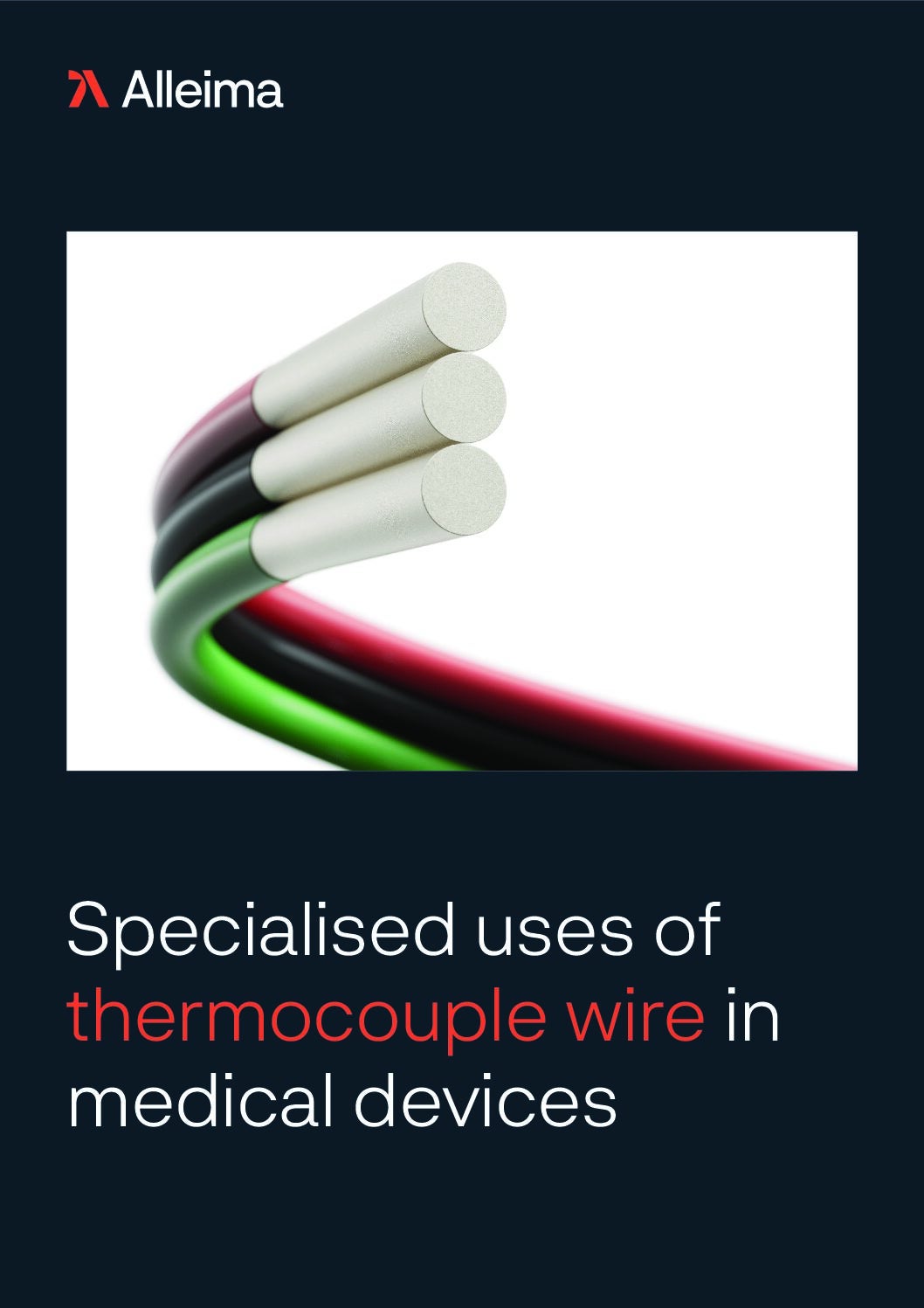
A medical-grade thermocouple is a device based on thermo-electric operations composed of bifilar and multi-filar wires made from traditional thermocouple alloys. They are used for measuring tissue temperature during therapeutic procedures.
The two sets of wire are manufactured from different metals coupled at two points, and the temperature difference between the two points is developed and recorded in proportion to the corresponding difference of voltage being developed.
Thermocouples are commonly used to treat tachycardia and atrial fibrillation, as well as to measure the tissue temperature during radiofrequency ablation of cardiac arrhythmias. They are also used in ventilators.
Drawing on their extensive knowledge of metallurgy, including more than 200 metals and alloys, along with customisations and configurations such as coiling and coatings, Alleima works closely with medical device manufacturers to design and build medical wire components perfectly calibrated for the customer’s application.
Alleima offers polymer-coated precision medical wire solutions that are ideal for sensor applications, such as thermocouples, which are used for vivo diagnostics and therapeutic procedures, where electrical signals or currents are conducted micro-invasively.
Alleima and its medical unit offers a range of metal materials that are widely used for thermocouples in general electronics, as well as in medical devices. Suggested materials for medical thermocouples include copper, Cuprothal®, a copper-nickel alloy, Thermothal® KP and Thermothal® KN (austenitic nickel-chromium alloys). Cuprothal® offers low resistivity and is commonly used for the negative leg of E, J, T and KCB (VX) thermocouples and compensating cables. Thermothal® P is used for the positive leg of thermocouples type E or type K, whereas Thermothal® N is used for the negative leg of thermocouples type K. Both alloys offer good resistance to oxidation.
For insolation coatings, Alleima offers a wide range of coatings suitable for sensing solutions such as thermocouples, these include Polyimide, Polyesterimide, Polyurethane, Polyester and PTFE.
For an in-depth look at thermocouple wires and the engineering services that Alleima provides, download the whitepaper below.



